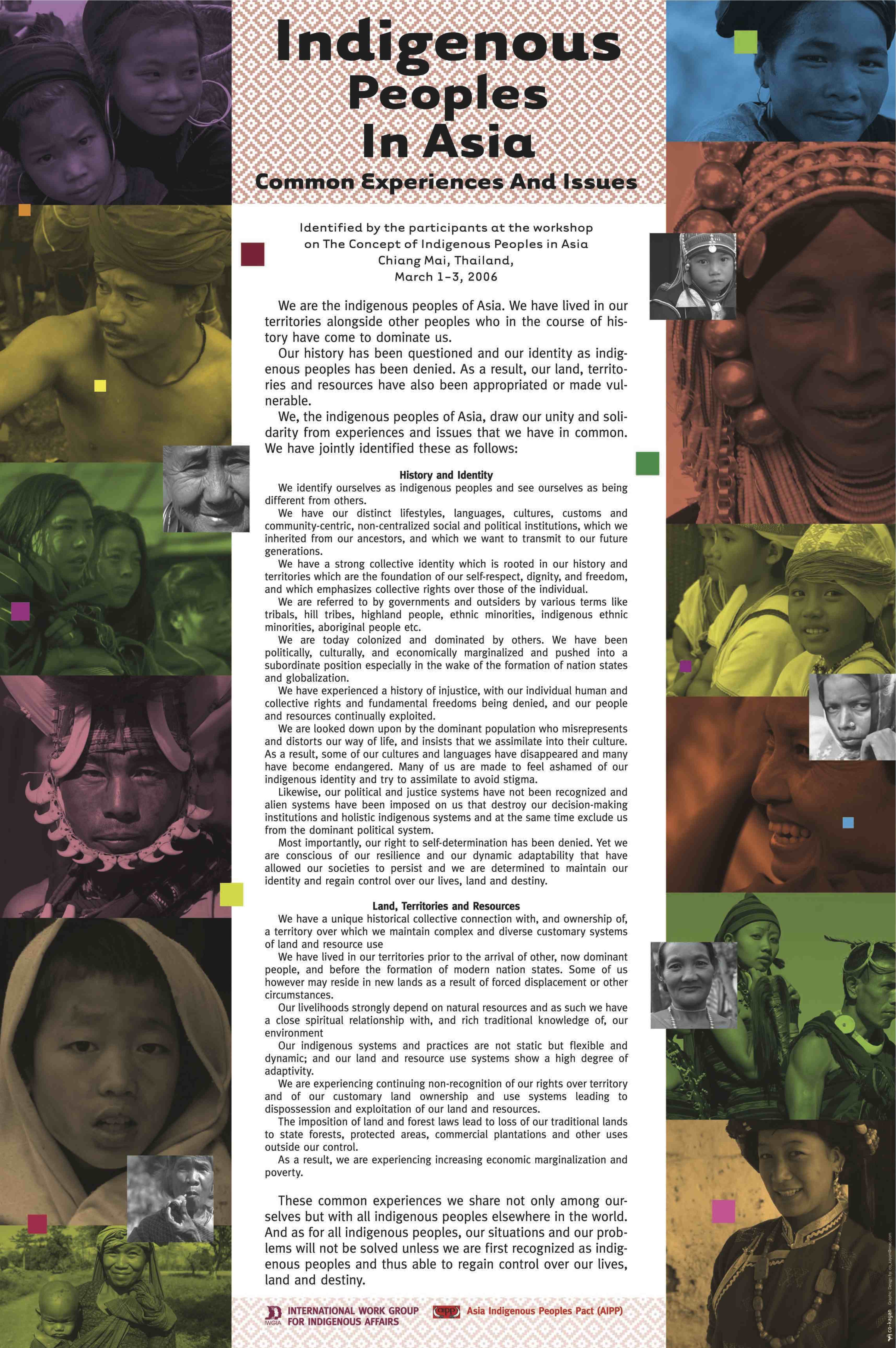Location
The Asia Indigenous Peoples Pact (AIPP) is a regional organization founded in 1988 by indigenous peoples' movements. AIPP is committed to the cause of promoting and defending indigenous peoples' rights and human rights and articulating issues of relevance to indigenous peoples. At present, AIPP has 47 members from 14 countries in Asia with 14 National Formations, 15 Sub-national Formations and 18 Local Formations. Of this number, 6 are Indigenous Women's Organizations and 4 are Indigenous Youth Organizations.
Our Vision
Indigenous peoples in Asia are fully exercising their rights, distinct cultures and identities, are living with dignity, and enhancing their sustainable management systems on lands, territories and resources for their own future and development in an environment of peace, justice and equality.
Our Mission
AIPP strengthens the solidarity, cooperation and capacities of indigenous peoples in Asia to promote and protect their rights, cultures and identities, and their sustainable resource management systems for their development and self-determination.
Our Goals
- To empower Indigenous peoples in Asia to promote and defend their human rights and fundamental freedoms and claim legal recognition to their identities, collective rights under UNDRIP and other international human rights instruments.
- To build the broadest solidarity and cooperation of indigenous peoples in Asia to strengthen indigenous movements.
- To promote and protect the integrity of the environment and enhance the sustainable resource management systems of indigenous peoples including their traditional knowledge, food security and biodiversity by having full control over their land, territories and resources.
- To attain full and effective participation of indigenous peoples, particularly indigenous women and youth at all levels of decision-making.
- To strengthen solidarity and cooperation with other social movements towards achieving equality, peace, democracy and justice.
Resources
Displaying 21 - 22 of 22Indigenous Peoples in Asia. Common Experiences and Issues
Issue poster about Indigenous Peoples in Asia and their common experiences and issues.
Capacity development: Applying the VGGT for and with Indigenous Peoples (India)
General
The programme, jointly developed by the Indigenous Peoples’ team and the Land tenure team in FAO, as well as with the Asia Indigenous Peoples pact and local Indigenous Peoples’ organizations, was specifically designed for Indigenous Peoples of India (Adivasi). It lasted for about one year, and consisted in two sub-national workshops (in north-east India and central India), a period during which the participants conduct research in their communities, and one national workshop carried out in New Delhi, in August 2016 to present the results of this research and discuss with government representatives. The overall objective was to strengthen the recognition and protection of indigenous peoples’ tenure rights and customary tenure systems, exploring practical actions to implement the VGGT in conjunction with national and local laws, in particular the Forest Rights Act.




